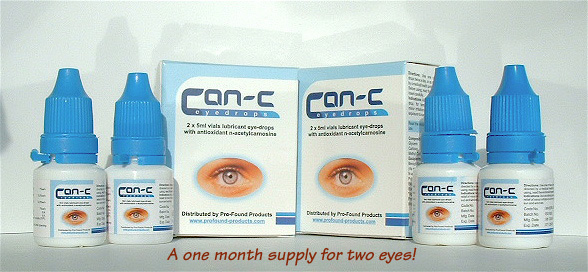Little Weight Loss Goes A Long Way
You have permission to publish this article electronically or in
print, free of charge, as long as the bylines are included. A
courtesy copy of your publication would be appreciated.
Original URL (The Web version of the article)
————————– Little Weight Loss Goes A Long Way
Title
————————– Little Weight Loss Goes A Long Way
Little Weight Loss Goes A Long Way
————————– From driving up your blood pressure
and cholesterol, to increasing your risk of heart disease,
diabetes, cancer, and more, there’s no question that being
overweight is more than just a cosmetic problem – it’s a serious
threat to your health.
At the same time, if you’re like most folks, even the thought of
embarking on a 20-, 40-, or even 100-pound weight-loss plan can
seem like a mountain that’s impossible to climb.
If this is the way you’re feeling right now, take heart. Today,
the most progressive weight-loss experts agree you don’t have to
climb the whole mountain, or even go halfway up, to improve your
health. Indeed, taking even a few small steps toward your
weight-loss goals can go a long way in reducing your health
risks, even if you never reach the ideal number on your bathroom
scale.
Even Small Steps Have Big Benefits
————————–
At the same time, Sondike tells WebMD that losing weight in an
unhealthy manner, for example, by starving yourself or using
diet aids like ephedra, can work against your overall health,
sometimes leaving you in worse shape than before you attempted
the weight loss.
“Depending on what you take or what you do, you could end up
with higher blood pressure and a worse cardiovascular profile
than when you weighed more,” says Sondike.
Along these same lines, University of Utah nutrition expert
Shawn Talbott, PhD, cautions that attempting too stringent a
weight-loss plan can also backfire, and take its toll on your
health.
“Both extreme calorie restriction and placing yourself under a
great deal of mental stress about losing weight has been shown
to increase cortisol levels, the hormone that is associated with
high stress,” says Talbott, the author of The Cortisol
Connection.
When this happens, he says, it causes your appetite to soar, not
only encouraging you to eat more, but also increasing the
likelihood that whatever weight you do gain will be stored as
abdominal fat.
“This can then increase your risk of heart disease and other
significant health problems,” says Talbott.
In the end, he says, it’s the act of living more healthfully,
and not just dieting, that matters most, even if you never reach
your weight goals.
Anhalt agrees. “A little weight loss achieved in a healthy way
is far more beneficial than a large weight loss that happens in
an unhealthy way.” If you lose even one pound through healthy
living, he says, “You do an incredible service to your body and
your health.”
Better to Be ‘Fat and Fit’
————————– If you simply take some healthful
steps in the direction of your weight-loss goals, you are likely
to reap some healthy rewards, even if you never drop a single
pound.
As remarkable as that sounds, in studies published in March 2003
in the Annals of Internal Medicine, CDC researchers found that
those folks who simply tried to lose weight lived longer.
The finding does not surprise dietitian Samantha Heller, MS, RD,
who believes effort does count.
“Very often, simply making the effort to lose weight, such as
adding more fruits and vegetables to your diet, reducing your
intake of sweets, junk foods, and saturated fats (found in foods
like meat, cheese, and butter), and becoming more physically
active can improve your overall health and reduce your risk of
heart disease and diabetes, too,” says Heller, a nutritionist at
New York University Medical Center.
So, Heller tells WebMD, even if you never actually lose any
weight, doing these things alone is bound to help you feel
better and ultimately, impact your health in a positive way.
And many doctors now believe that even if you are unable to lose
any weight at all, keeping yourself from gaining pounds as the
years go by will also help you gain some important health
benefits.
“If you can focus your efforts on achieving a more healthy
lifestyle, if you increase your level of physical activity just
a little bit, and maybe incorporate some healthful changes into
your daily diet you will not only be successful at preventing
weight gain, in the process you will be doing something positive
for your health,” says Sondike.
“In the end,” says Anhalt,” it’s not about the pounds, it’s all
about the lifestyle changes, and about understanding that, in
the long run, fat and fit is ultimately better than thin and
unfit.”
If you make the changes that lead to a healthier lifestyle,
experts say you will definitely be healthier, and ironically,
you’ll probably weigh a lot less as well.
Source: WebMD
- DON'T MISS
- A Coffee Diet? I’ve Heard It All Now!
- Weight Loss – Make a Significant and Lasting Lifestyle Change
- The Best Weight Loss Exercise Is
- Weight: Give Us Something To Shoot For
- Diets Don’t Work – 4 Ways To Lose Weight Naturally
- Online Dental Journals How these have revolutionized Science
- A Comparison of Various Types of Popular Diets Today
- Yoga for Weight Loss: What you need know to succeed (part 1)
- Emotional Eating
- The RESULTS Diet!




